MATAMOROS, Mexico (Border Report) — Her nickname is “Gab-Zilla,” and she wears the moniker proudly as she explains how she has had to fight with Mexican and U.S. officials for the rights of nearly 2,000 asylum-seekers living in a refugee camp in Matamoros.
Gabriela Zavala is the executive director of the Resource Center for Asylum Seekers in Mexico, which in late October opened a new office in Matamoros, just two blocks from the Gateway International Bridge where the tent city is located. It is an off-shoot of the nonprofit Asylum Seeker Network of Support, which she founded in Brownsville, Texas, in January.
Just days after this new office opened, she sat down with Border Report to explain her nonprofit’s mission, the difficulties of dealing with Mexican authorities and why she and her skeleton staff persevere on behalf of the migrants, also known as MPPs.
The migrants are part of the Trump Administration’s Migrant Protection Protocols program, which so far has returned over 65,000 asylum-seekers to remain in Mexico while they await their U.S. asylum hearings.
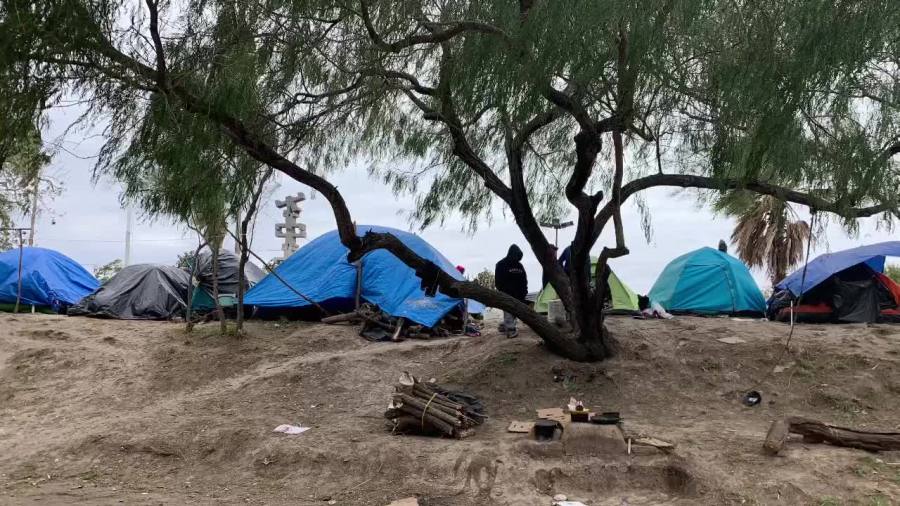
Every day an estimated 100 new MPPs are added to the tent city in Matamoros, where women, children and families live without access to running water, electricity or permanent shelter, and are reliant upon nonprofits and non-governmental organizations for help.
The camp has exploded in size since MPP was implemented in South Texas in mid-July. Now, nearly all migrants who are apprehended in South Texas are returned to Mexico. Most don’t have money for a hotel or an apartment, so they live in donated tents at the base of the international bridge in an area that is owned by the Mexican federal government and protected by armed soldiers.
Zavala says migrants feel the safest there, but as their numbers swell, local Mexican officials have repeatedly called for their relocation further into the city, citing medical and sanitation concerns. And that is the balancing act that she says her two-person staff must manage on a daily basis.
“We try to find a middle ground in everything we do and satisfy the fears of the migrants,” Zavala said.
That often leads to conflicts and heated discussions with local Mexican officials, she said.
“To do this work, you have to be aggressive and assertive, and you have to put your foot down. When I go to meetings with Mexican government officials, it’s not a nice meeting. I have to stand my ground and fight for the rights of the migrants every day, and it’s not easy because nobody speaks for them,” Zavala said.
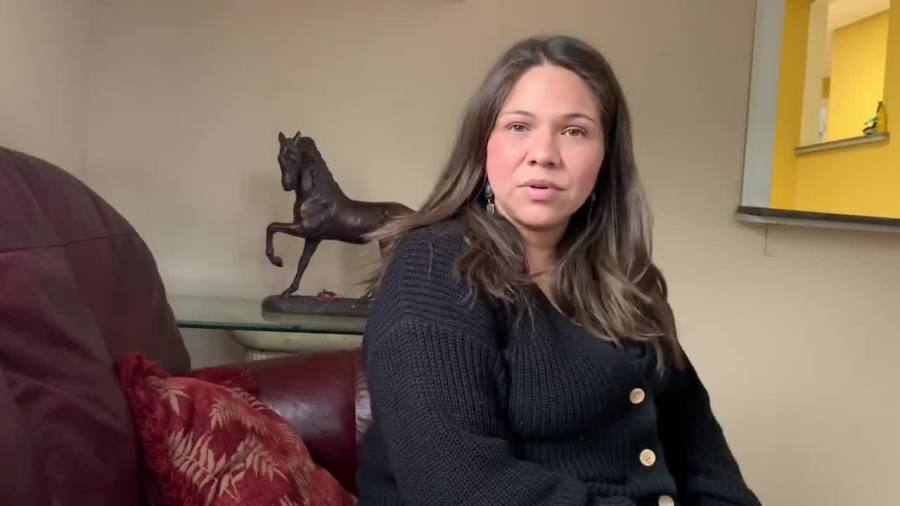
But, she points out, the talks continue on a daily basis and that’s important to her.
Zavala, 36, grew up in Brownsville, just across the bridge. She not only speaks Spanish and knows the culture, but she has the respect of U.S. and Mexican officials and the migrants, who all know her and her employee, Kelly Escobar, on a first-name basis.
Zavala recently gave birth to her second child, a day after she had showers installed in the camp. She says she has always been a community organizer, and has worked for Planned Parenthood, an HIV clinic as a counselor, and two years at La Union Del Pueblo Entero (LUPE), a community union César Chávez and Dolores Huerta founded.
Zavala spoke at a news conference hosted by the South Texas Democratic congressmen Filemon Vela and Vicente Gonzalez last month at the U.S. Capitol in Washington, D.C., where she was asked to describe the conditions in the refugee camp and the obstacles she and her staff face trying to help migrants.
“We cannot expect the Mexican or U.S. federal government to help with any federal money, these efforts are being driven solely by nonprofit groups,” Vela told Border Report last week in touting Zavala’s efforts.
Vela said that Zavala’s organization, and Team Brownsville, a local nonprofit that delivers food to the migrants twice daily from Brownsville, are primarily keeping the camp alive as the colder weather sets in.
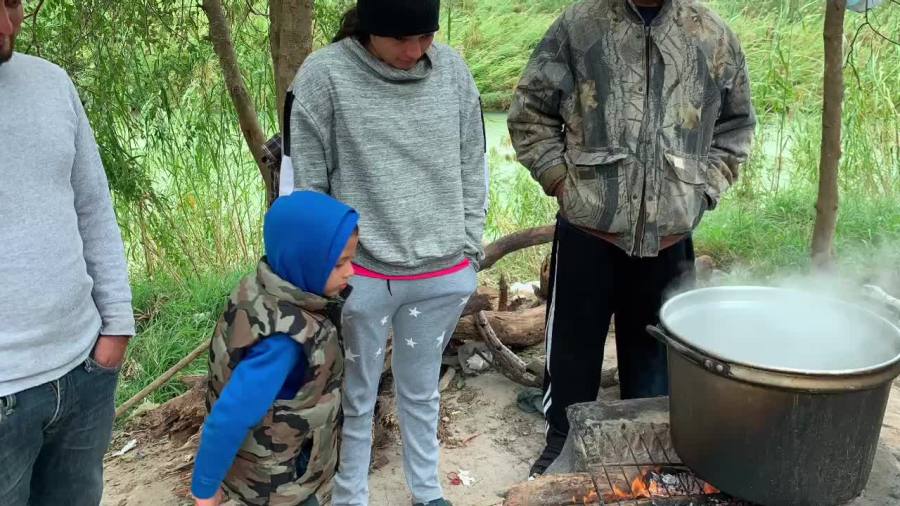
Zavala’s offices are on the second floor of a building just off an area known as the Plaza, in the Colonial Jardin district of Matamoros. The doorbell rings constantly as families of migrants stream through the security gates at all hours of the day and night. Here, they are connected with legal counsel, have access to computers, printers and translators who can help them with their court documents. Her group also helped to set up showers for the migrants and got the city of Matamoros to set up a teeth-brushing station near her offices.
The nonprofit organization Lawyers for Good Government leases space from this office, and migrants can set up appointments to meet with these pro bono lawyers to discuss their upcoming hearings.
Oftentimes, Zavala’s organization is sent to find migrants living in the tents to get them to fill out legal documents. Many of the migrants don’t have phones, so Zavala’s group makes nightly announcements over megaphones during the 5 p.m. dinner brought by Team Brownsville volunteers. The migrants have become so familiar with the process, that they know to assemble and quiet at that time to hear who might be called.
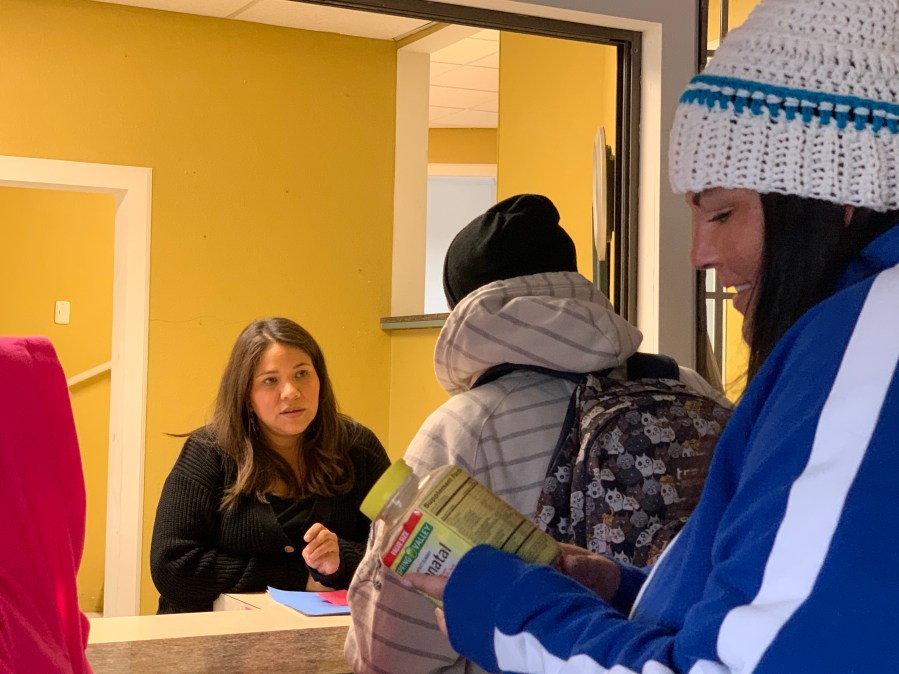
When Desarrollo Integral de la Familia (DIF), a local child service’s organization run by the government of Matamoros, tried to round up the migrant camp’s children last month to take them to a shelter several miles away, Zavala sat down with Mexican officials and explained the migrants’ fears and concerns.
They are “targets of organized crime, extortion, sexual coercion,” Zavala said, adding that the stories about women being raped, children kidnapped and families extorted are true.
The Gulf drug cartel — which has a stronghold in this city of 450,000 people — commits most of the crimes against the migrants, who are also preyed upon by local street gangs. That is why they say they don’t want to leave the spit of federal land where they feel relatively protected by Mexican federal soldiers.
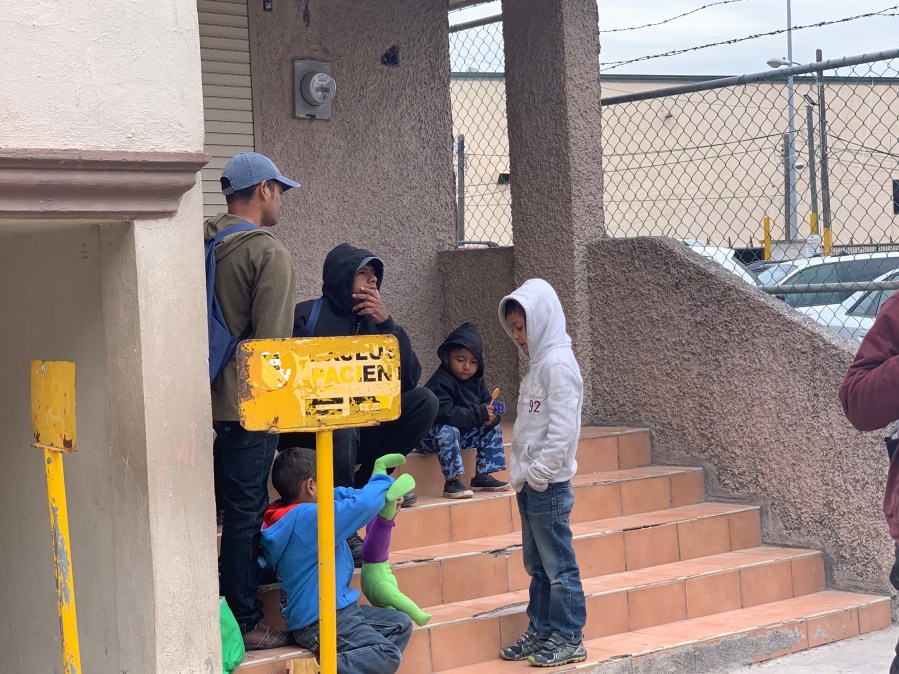
“The migrants don’t feel safe leaving this area. This is a federal property. They don’t feel trust leaving anywhere far because they don’t know if they’ll come back and we don’t know if that’s not true,” Zavala said. “They tell us, ‘They tried to kidnap us as soon as we left this area,’ which is the federal property. We have the soldados right next to us. The Colonial Jardin tends to be a safe zone, so leaving here is a danger for them. So we have to advocate for them.”
















